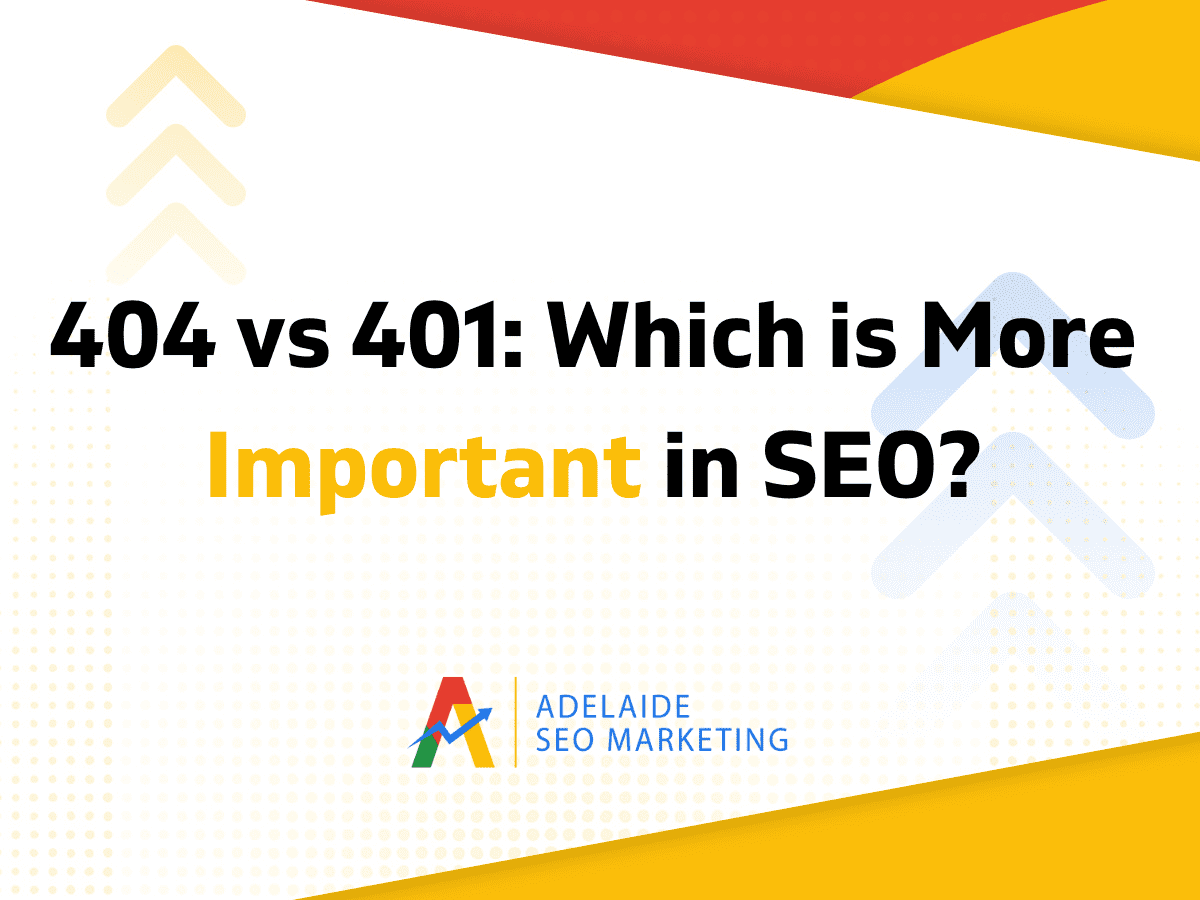In the world of Search Engine Optimisation (SEO), technical aspects often play a crucial role in determining a website’s performance and ranking. Among these technical elements, HTTP status codes are essential indicators that inform both search engines and users about the status of a web page. Two commonly encountered HTTP status codes are 404 (Not Found) and 401 (Unauthorised). While both errors are significant, they impact SEO differently. In this blog, we will delve into the specifics of 404 and 401 errors, exploring their implications for SEO and offering strategies to manage them effectively.
Understanding 404 and 401 Errors
What is a 404 Error?
A 404 error, or “Not Found” error, occurs when a server cannot find the requested resource. This usually happens when the URL is incorrect, the page has been moved, or the content has been deleted. When users or search engine crawlers encounter a 404 error, they receive a message indicating that the page they are looking for is unavailable.
Common Causes of 404 Errors:
- Deleted pages
- Moved content without proper redirection
- Typographical errors in URLs
- Broken links
What is a 401 Error?
A 401 error, or “Unauthorised” error, occurs when a user tries to access a resource that requires authentication. This means that the server recognises the request but refuses to fulfill it without proper credentials. Unlike 404 errors, 401 errors indicate that the page exists but requires authorisation to view.
Common Causes of 401 Errors:
- Incorrect login credentials
- Expired session tokens
- Restricted access to specific user roles
- Missing or incorrect authentication headers
SEO Implications of 404 and 401 Errors
Impact of 404 Errors on SEO
- User Experience: 404 errors can significantly disrupt the user experience. When visitors encounter a 404 error, they may leave the site, leading to higher bounce rates and lower user engagement metrics, which can negatively impact SEO.
- Crawl Budget: Search engines allocate a specific crawl budget to each website, determining how many pages they will crawl and index within a given time frame. Frequent 404 errors can waste this budget, preventing important pages from being indexed.
- Link Equity: If a page with inbound links returns a 404 error, the link equity or “link juice” from those links is lost, affecting the site’s overall link profile and potentially lowering its search rankings.
- Indexing Issues: Consistent 404 errors can lead to deindexing of the affected pages. If search engines repeatedly find pages returning 404 errors, they may eventually remove them from the index, reducing the site’s visibility in search results.
Impact of 401 Errors on SEO
- Restricted Access: Since 401 errors indicate restricted access, search engine crawlers may not be able to index the content behind these errors. This can prevent important pages from being included in search engine results, limiting their discoverability.
- User Access Issues: If users frequently encounter 401 errors, it can lead to frustration and decreased user engagement. While this might not directly affect SEO, poor user experience can indirectly influence rankings over time.
- Crawl Efficiency: Although 401 errors do not typically waste crawl budget like 404 errors, they can still affect crawl efficiency. If important content is hidden behind authentication barriers, search engines might not fully understand the site’s relevance and authority.
Managing 404 and 401 Errors for Better SEO
Best Practices for Handling 404 Errors
- Implement 301 Redirects: Redirect deleted or moved pages to relevant alternatives using 301 redirects. This helps preserve link equity and ensures users and search engines find useful content.
- Create a Custom 404 Page: Design a user-friendly 404 page that provides helpful links and a search bar to guide users back to relevant content. This can reduce bounce rates and improve user experience.
- Regularly Monitor for Broken Links: Use tools like Google Search Console and third-party link checkers to identify and fix broken links on your site. Regular maintenance can prevent 404 errors from accumulating.
- Update Internal Links: Ensure that all internal links point to active, relevant pages. This helps maintain a smooth user experience and ensures search engines can crawl and index your content efficiently.
Best Practices for Handling 401 Errors
- Ensure Proper Authentication: Make sure that authentication mechanisms are functioning correctly and that users have the necessary credentials to access restricted content.
- Use Robots.txt: If certain sections of your site are intentionally restricted, use the robots.txt file to prevent search engines from crawling those areas. This helps preserve the crawl budget and ensures search engines focus on accessible content.
- Provide Clear Access Instructions: If certain pages require login or special access, provide clear instructions or links to the login page. This can help users understand how to access the content they need.
- Monitor and Resolve Access Issues: Regularly check for 401 errors using server logs and analytics tools. Resolve any unintended access issues promptly to ensure a seamless user experience.
Conclusion: Which is More Important for SEO?
While both 404 and 401 errors can impact SEO, 404 errors tend to have a more immediate and noticeable effect. They can disrupt user experience, waste crawl budget, and lead to lost link equity, all of which can negatively influence search rankings. Managing 404 errors effectively is crucial for maintaining a healthy website and ensuring optimal SEO performance.
On the other hand, 401 errors, while important, typically affect a more specific aspect of the site. They restrict access to certain content but do not waste crawl budget or directly lead to deindexing. However, ensuring that search engines and users can access important content without unnecessary barriers is essential for maximising your site’s visibility and user engagement.
At Adelaide SEO Marketing, we understand the intricacies of managing technical SEO issues. Our team of experts can help you identify, resolve, and prevent 404 and 401 errors, ensuring your website remains optimised for search engines and delivers an excellent user experience. Contact us today to learn how we can support your SEO efforts and help your business thrive in the digital landscape.

SEO That Converts: More Clicks, More Customers.
Your journey to online success begins here, with Adelaide SEO Marketing. We’re not just a service; we’re your partners in growth.







